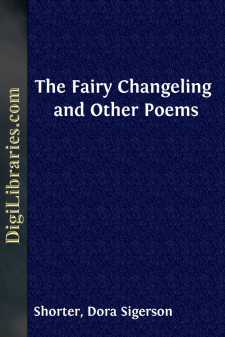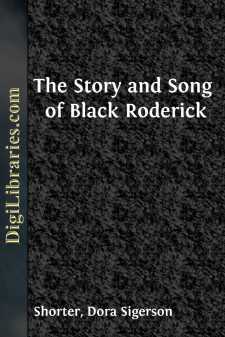Categories
- Antiques & Collectibles 13
- Architecture 36
- Art 48
- Bibles 22
- Biography & Autobiography 813
- Body, Mind & Spirit 141
- Business & Economics 28
- Children's Books 12
- Children's Fiction 9
- Computers 4
- Cooking 94
- Crafts & Hobbies 4
- Drama 346
- Education 46
- Family & Relationships 57
- Fiction 11826
- Games 19
- Gardening 17
- Health & Fitness 34
- History 1377
- House & Home 1
- Humor 147
- Juvenile Fiction 1873
- Juvenile Nonfiction 202
- Language Arts & Disciplines 88
- Law 16
- Literary Collections 686
- Literary Criticism 179
- Mathematics 13
- Medical 41
- Music 40
- Nature 179
- Non-Classifiable 1768
- Performing Arts 7
- Periodicals 1453
- Philosophy 64
- Photography 2
- Poetry 896
- Political Science 203
- Psychology 42
- Reference 154
- Religion 513
- Science 126
- Self-Help 83
- Social Science 81
- Sports & Recreation 34
- Study Aids 3
- Technology & Engineering 59
- Transportation 23
- Travel 463
- True Crime 29
Dora Sigerson Shorter
Dora Sigerson Shorter (1866–1918) was an Irish poet and novelist, known for her work as part of the Irish Literary Revival. She wrote numerous poems and stories that reflected themes of Irish nationalism, folklore, and melancholy. Some of her notable works include the poetry collections "The Fairy Changeling and Other Poems" and "The Woman Who Went to Hell and Other Ballads and Legends." Sigerson Shorter was also a sculptor and married the English writer Clement Shorter, contributing significantly to both Irish literature and the Celtic Revival movement.
Author's Books:
Sort by:
THE FAIRY CHANGELING Dermod O’Byrne of Omah townIn his garden strode up and down;He pulled his beard, and he beat his breast;And this is his trouble and woe confessed: “The good-folk came in the night, and theyHave stolen my bonny wean away;Have put in his place a changeling,A weashy, weakly, wizen thing! “From the speckled hen nine eggs I stole,And lighting a fire of a glowing coal,I fried the...
more...
This is the story of Black Earl Roderick, the story and the song of his pride and of his humbling; of the bitterness of his heart, and of the love that came to it at last; of his threatened destruction, and the strange and wonderful way of his salvation. So shall I begin and tell. He left his gray castle at the dawn of the morning, and with many a knight to bear him company rode, not eager and swift,...
more...



